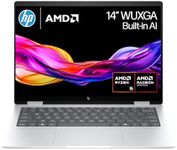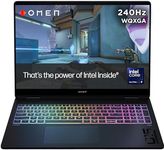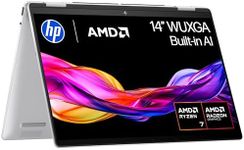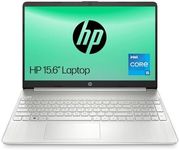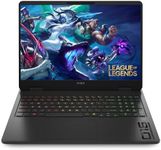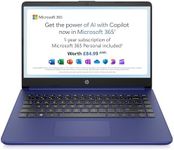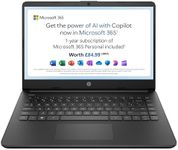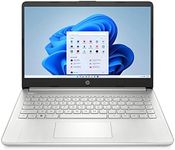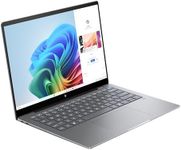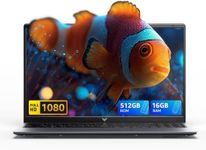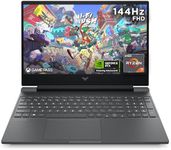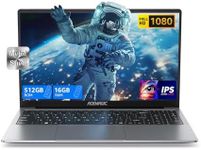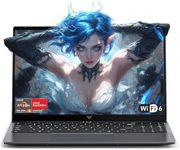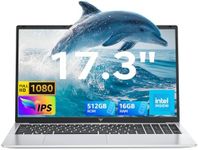Buying Guide for the Best Hp Laptops
When choosing an HP laptop, it's important to consider what you'll primarily use the laptop for, as this will guide you in selecting the right specifications. Whether you need a laptop for basic tasks like browsing and word processing, or more demanding activities like gaming or video editing, understanding the key specifications will help you make an informed decision. Consider the balance between performance, portability, and battery life to find a laptop that fits your lifestyle and needs.Processor (CPU)The processor, or CPU, is the brain of your laptop, determining how fast and efficiently it can run programs. For basic tasks like web browsing and word processing, an Intel Core i3 or AMD Ryzen 3 might suffice. For more demanding tasks like gaming or video editing, consider an Intel Core i5/i7 or AMD Ryzen 5/7. If you need a laptop for professional-grade tasks, such as 3D rendering, look for high-end processors like Intel Core i9 or AMD Ryzen 9. Choose a processor based on the complexity and intensity of the tasks you plan to perform.
RAMRAM, or Random Access Memory, is crucial for multitasking and running applications smoothly. For basic use, 4GB of RAM might be enough, but 8GB is recommended for a smoother experience. If you plan to run multiple applications simultaneously or use more demanding software, 16GB or more will provide better performance. Consider your multitasking needs and the types of applications you use to determine the right amount of RAM.
StorageStorage determines how much data you can keep on your laptop. There are two main types: HDD (Hard Disk Drive) and SSD (Solid State Drive). SSDs are faster and more reliable but usually more expensive. For general use, a 256GB SSD is a good starting point. If you store a lot of media files or large applications, consider 512GB or more. If budget allows, a combination of SSD for speed and HDD for capacity can be ideal. Choose based on your storage needs and preference for speed.
DisplayThe display size and resolution affect your viewing experience. A 13-14 inch screen is portable and suitable for travel, while a 15-17 inch screen offers a larger viewing area for work or entertainment. Resolution is also important; Full HD (1920x1080) is standard and sufficient for most users, but higher resolutions like 4K offer sharper images, which is beneficial for design work or watching high-definition content. Consider how you plan to use the laptop and where you'll use it most often.
Graphics Card (GPU)The graphics card is important for rendering images, videos, and games. Integrated graphics are sufficient for basic tasks and light gaming. For more intensive gaming or graphic design, a dedicated GPU like NVIDIA GeForce or AMD Radeon is recommended. The choice of GPU should align with your needs for gaming, video editing, or 3D work. If you don't plan to do graphics-intensive tasks, an integrated GPU will save power and cost.
Battery LifeBattery life is crucial if you need to use your laptop on the go without frequent access to power outlets. Laptops with longer battery life are ideal for travel or working in places without easy access to charging. Consider how often you'll be away from a power source and choose a laptop with a battery life that matches your mobility needs. Keep in mind that more powerful components can drain the battery faster.
Build Quality and PortabilityThe build quality affects the durability and feel of the laptop. Metal bodies are generally more durable than plastic ones. Portability is determined by the weight and thickness of the laptop. If you travel frequently, a lightweight and slim laptop is easier to carry. Consider how often you'll be moving your laptop and choose a build that suits your lifestyle and durability expectations.
